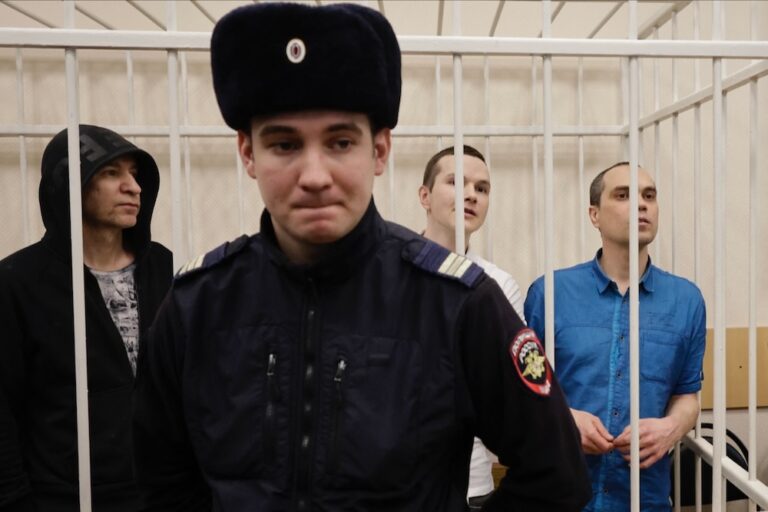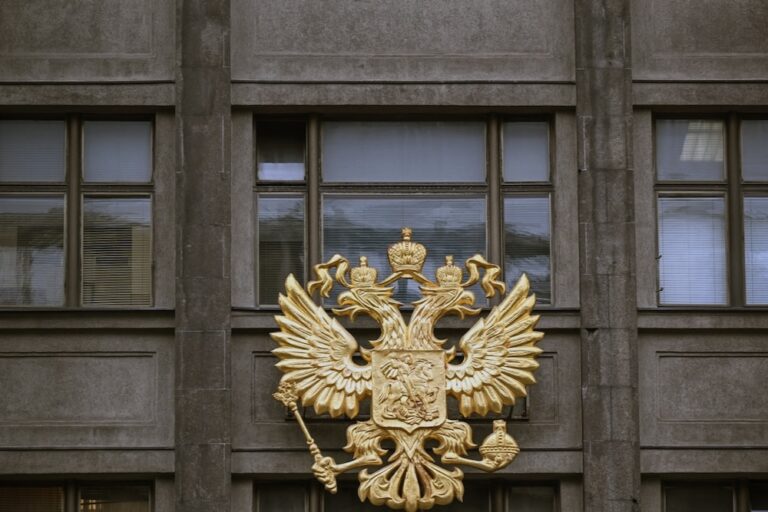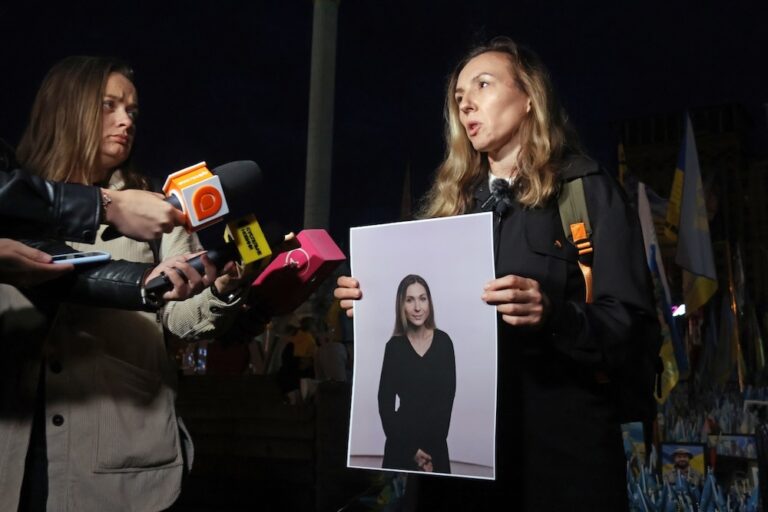(WiPC/IFEX) – On 25 December 2001, Grigory Pasko, the military journalist who has been on trial for his documentation of the dumping of nuclear waste by the Russian Navy, was forced to return to prison for a further two years and four months. International PEN is outraged at this decision and calls for his immediate […]
(WiPC/IFEX) – On 25 December 2001, Grigory Pasko, the military journalist who has been on trial for his documentation of the dumping of nuclear waste by the Russian Navy, was forced to return to prison for a further two years and four months. International PEN is outraged at this decision and calls for his immediate and unconditional release.
Background Information
Pasko was first arrested in November 1997 after having written on and obtained video footage of the Russian Pacific Fleet dumping nuclear waste and old weapons into the sea. At the time, Pasko was a navy captain working for its newspaper “Boyevaya Vakhta” (“Battle Watch”). He also worked as a freelance journalist for the Japanese press.
Pasko was charged with gathering classified information with the intention of passing it on to Japan. He remained detained until July 1999 when a military court dismissed all ten charges of treason against him, although he was sentenced to three years’ imprisonment for abuse of his military office. This sentence was wiped out by an amnesty. However, in November 2000 the prosecuting authorities’ appeal against Pasko’s acquittal was accepted, and once again Pasko found himself in court.
The second trial started in March 2001, although a series of hitches led to the trial not starting in earnest until July. Hopes were high that Pasko would once again be acquitted, hence the widespread shock felt at the 25 December decision that he be sentenced to four years in prison. All but one of the ten counts of espionage were again dismissed. However, the court concluded that one count, based on notes he had taken while covering a meeting of the Pacific Fleet in September 1997 for “Boyevaya Vakhta” that were found in his flat when arrested two months later, did contain classified information. However, he is not accused of having published sensitive information.
The four-year prison term against Pasko was reduced to two years and four months to take into account the twenty months he has already served. He returned to prison on 25 December where he is expected to remain until the Supreme Court hears his appeal. There are fears that this could take up to a year.
Pasko’s case has led to widespread concern among the human rights community both within Russia and abroad. The leader of Russia’s upper house of parliament and an ally of President Putin has stated that there were no grounds for Pasko’s conviction and advised Pasko to appeal against the decision. Pasko also has support from liberal members of the Russian Parliament. He is an Amnesty International Prisoner of Conscience and has been subject to International PEN members’ appeals since his arrest in November 1997.
Recommended Action
Send appeals to authorities:
– noting that, in your opinion, Pasko has been detained solely for having disclosed the Russian Pacific Fleet’s poor nuclear safety provisions
– stating that you consider his conviction to be a gross contravention of the right to freedom of expression
– calling on them to order Pasko’s immediate release
– requesting that they halt further judicial proceedings
Appeals To
Major General S M Volkov
Chief Justice
Court of the Pacific Fleet
Svetlanskaja street 55
Vladivostok 690010
Russian Federation
Appeals may be sent by email via Russian PEN: penrussian@dol.ru
Also send appeals to the Russian ambassador in your country asking him/her to forward your concerns to the appropriate persons in Russia and also asking for the embassy’s own comments.
You may also consider approaching the Russia desk at your own foreign office requesting that Pasko’s case be taken up at a diplomatic level.
Personal messages may also be sent directly to Grigory Pasko’s email: pasko@vlad.ru.
Please copy appeals to the source if possible.


